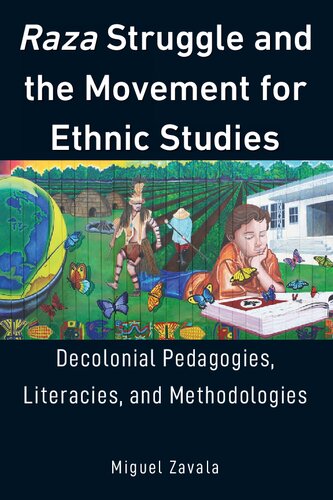

Most ebook files are in PDF format, so you can easily read them using various software such as Foxit Reader or directly on the Google Chrome browser.
Some ebook files are released by publishers in other formats such as .awz, .mobi, .epub, .fb2, etc. You may need to install specific software to read these formats on mobile/PC, such as Calibre.
Please read the tutorial at this link: https://ebookbell.com/faq
We offer FREE conversion to the popular formats you request; however, this may take some time. Therefore, right after payment, please email us, and we will try to provide the service as quickly as possible.
For some exceptional file formats or broken links (if any), please refrain from opening any disputes. Instead, email us first, and we will try to assist within a maximum of 6 hours.
EbookBell Team

0.0
0 reviewsRaza Struggle and the Movement for Ethnic Studies: Decolonial Pedagogies, Literacies, and Methodologies presents an investigation of decolonization in the context of education and what this means for ethnic studies projects. It accomplishes this exploration by looking at the history of Raza communities, defined broadly as the Indigenous and mestizo working class peoples from Latin America, with a focus on the complex yet unifying Chicanx-Mexican experience in the Southwest United States. This book bridges the fields of history, pedagogy, and decolonization through a creative and interweaving methodology that includes critical historiography, dialogue, autoethnography, and qualitative inquiry. Collectively, this work opens new ground, challenging scholars and educators to rethink critical education rooted in traditional and Western frameworks. Arguing for decolonial and Indigenous approaches, the author invites educators and cultural workers to reflect on learning and community in their praxis. Raza Struggle and the Movement for Ethnic Studies will be of interest to students of ethnic studies and Latin American and Mexican history. It is also relevant to teachers, teacher educators, and scholars who are intent on creating spaces of hope and possibility rooted in Freirean, decolonial, and Indigenous frameworks.